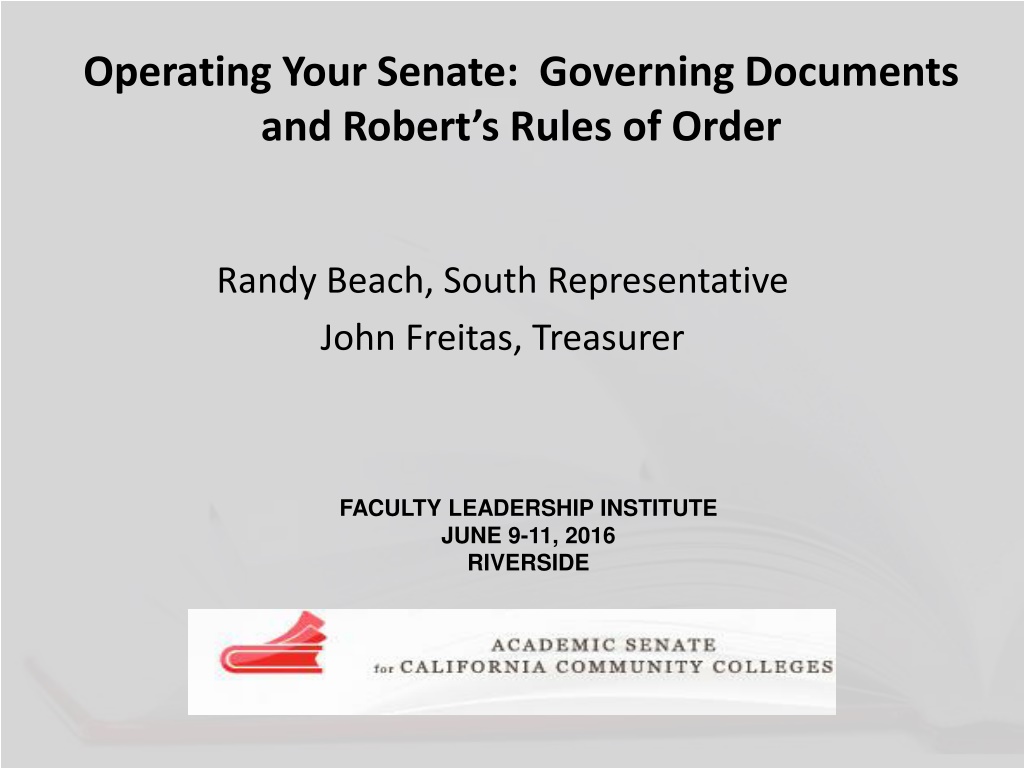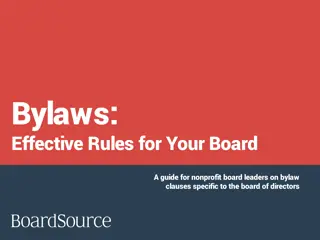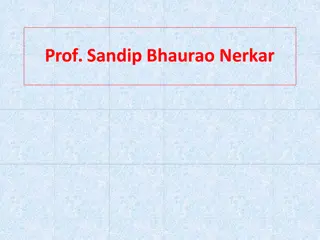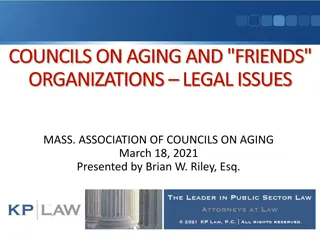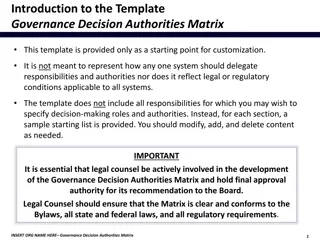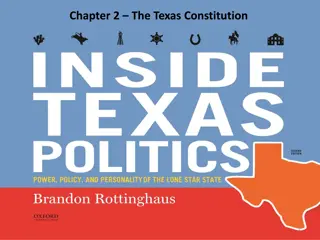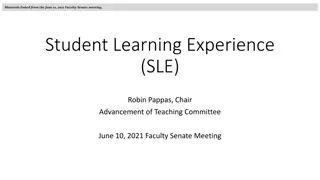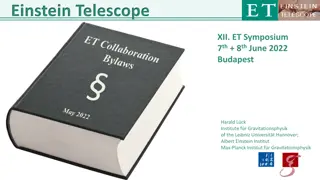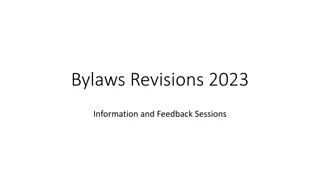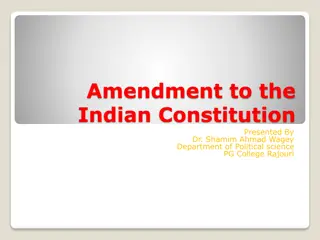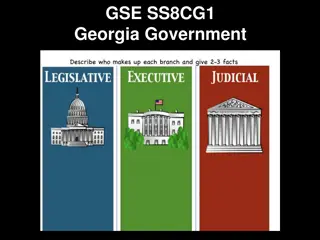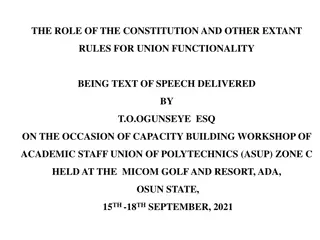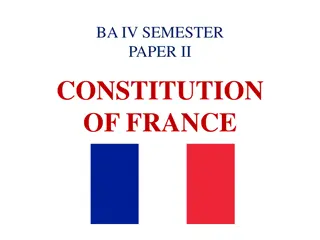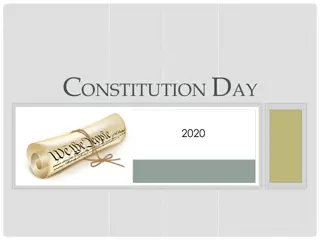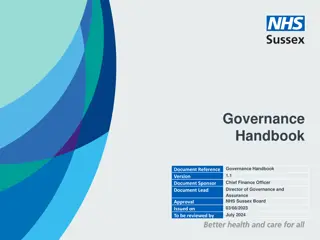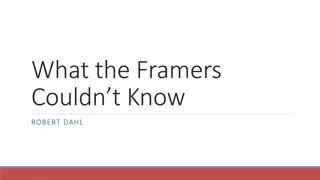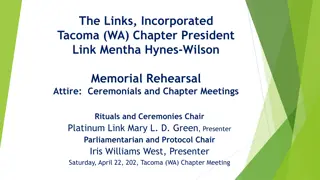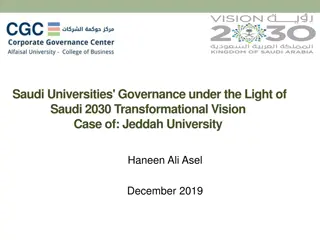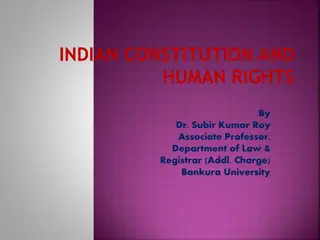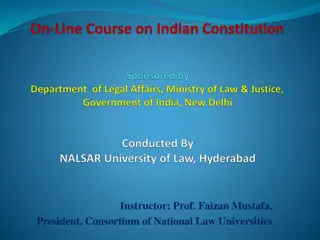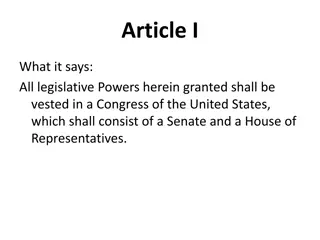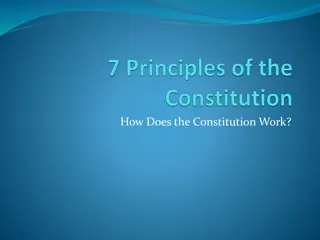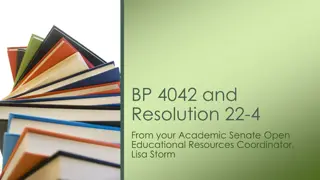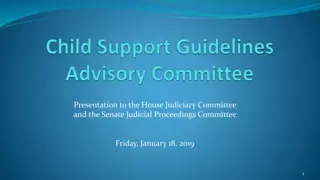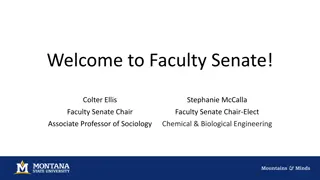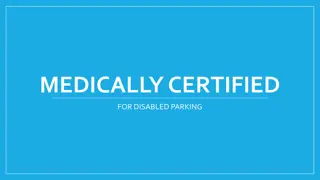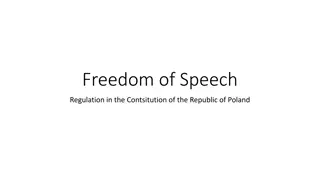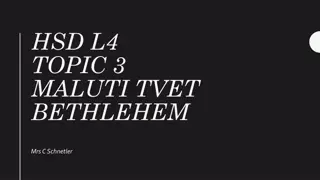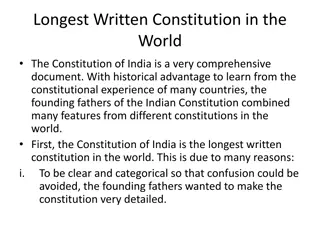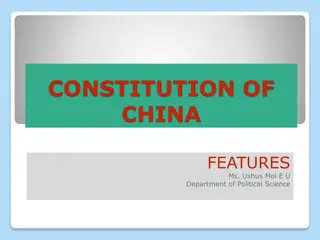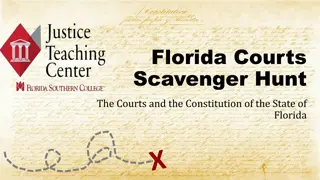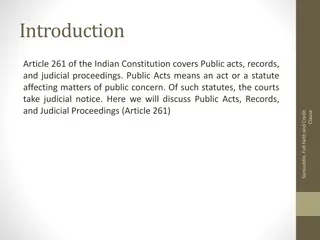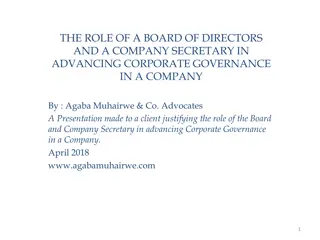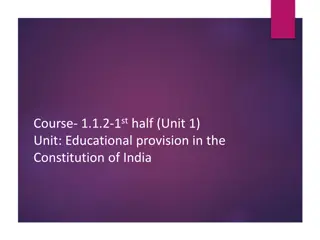Understanding Senate Governance: Constitution and Bylaws Overview
Explore the fundamental aspects of senate governance, including the constitution and bylaws, defining the structure, authority, and operational framework of a senate. Delve into the roles, responsibilities, and processes involved in creating and amending these governing documents within a Senate setting.
Download Presentation

Please find below an Image/Link to download the presentation.
The content on the website is provided AS IS for your information and personal use only. It may not be sold, licensed, or shared on other websites without obtaining consent from the author. Download presentation by click this link. If you encounter any issues during the download, it is possible that the publisher has removed the file from their server.
E N D
Presentation Transcript
Operating Your Senate: Governing Documents and Robert s Rules of Order Randy Beach, South Representative John Freitas, Treasurer FACULTY LEADERSHIP INSTITUTE JUNE 9-11, 2016 RIVERSIDE
Topics to be covered today Senate governing documents constitution and bylaws Robert s Rules of Order why we use them and some basics
Constitution Provides the basic structure and authority of your senate Should include at a minimum: The purpose of the senate and source of authority The elected officers of the senate with basic duties The basic organization of the senate Process for amending (normally 2/3 vote of the faculty votes cast) Basic provisions for election (frequency, when held) Parliamentary authority used (e.g. Robert s Rules of Order)
Constitution Should not include operational details, such as: Committee structure and membership Election procedures Filling vacancies Meeting times and dates How to suspend bylaws (Grrr!) These are more appropriate for bylaws
Bylaws Provide the operational structure of the senate consistent with the provisions of the constitution Approved and amended by 2/3 vote of the senate, not the faculty at large Cannot supersede the constitution!!!
Bylaws Should include at a minimum: Executive committee membership Committee names, membership, and process for selecting chairs and membership of committees Duties of officers and committee chairs Election procedures and filling of vacancies Process for amending bylaws Process for suspension should be very rare and require 2/3 vote! Other?
Board/Administration Role in Senate Constitutions and Bylaws None! Title 5, section 53202: (c) The governing board of a district shall recognize the academic senate and authorize the faculty to: 1) Fix and amend by vote of the full-time faculty the composition, structure, and procedures of the academic senate. 1) Provide for the selection, in accordance with accepted democratic election procedures, the members of the academic senate.
Keep Governing Documents Current Review constitution and bylaws on a regular basis, e.g. every 2 years, 6 years, or whatever is reasonable for your senate. Questions to ask during a review include: Is there anything irrelevant or out of date? Do constitution and bylaws reflect actual practice, and if not, what should be changed? Do they reflect the operational needs of the senate? Are they unnecessarily restrictive? Do they promote effective, inclusive, equitable, and collegial governance? Other questions?
Brown Act? Senates are required to adhere to the Ralph M. Brown Act for public meetings. All meetings of a legislative body of a local agency shall be open and public, and all persons shall be permitted to attend any meeting of the legislative body of a local agency... Section 54953(a) Brown Act doesn t require parliamentary procedure, but it helps to use it.
Why Should You Use Robert s Rules? A. They provide a form of protection B. Rules result in better meetings with better input C. Consistent meeting formats create a fair, collegial playing field for everyone in the meeting D. They are effective at enabling all sides to speak during angst-ridden, emotion-driven debate leading to better results. E. All of the above.
Things to Remember Large bodies - chair should preside with impartiality Facilitates the meeting Avoid making motions and engaging in debate Should vote only to break a tie (pass a motion) or make a tie (kill a motion) Standard rules can be modified e.g. define a quorum differently, rescinding a previously adopted motion The rules are not the goal they are the means to ensuring effective and collegial meetings.
Some sample documents on doing motions with Robert s Rules of Order Making a motion National PTA s Robert s Rules of Order The Basics
